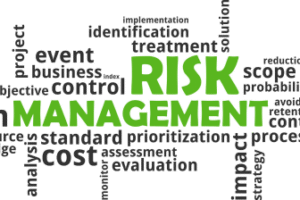
Top 5 In-Demand Cybersecurity Skills You Will Learn in a Certification Course
Top 5 In-Demand Cybersecurity Skills You Will Learn in a Certification Course
The need for cybersecurity experts grows each year as organisations strengthen their digital defences. Students and professionals now rely on a cyber security certification course to gain practical skills and qualify for roles such as Security Analyst, SOC Executive, Network Security Engineer, and Ethical Hacker.
One structured pathway is the PGDTRM at GRMI. It follows a Joint Academic Leadership model and is delivered with NU University. Learners gain access to industry-approved tools, practical labs, and a six-month paid internship.
If you are searching for a cyber security course near me, understanding the skills you will gain becomes essential. Below are the top five in-demand cybersecurity skills taught across most certification programmes.
1. Network Security and Infrastructure Protection
Network security is the core skill in every cybersecurity certification. It forms the base of digital defence because all organisations rely on connected systems.
What you learn:
- Identifying weaknesses in routers, switches, firewalls, and servers
- Using SSL/TLS, IPSec, and VPN security tools
- Applying configuration controls for infrastructure protection
- Understanding IDS and IPS systems
Attackers often exploit weak configurations or open ports, which makes this skill highly valuable.
In the PGDTRM at GRMI, network security is taught with guided sessions and live tools to give learners hands-on experience.
2. Cyber Threat Detection and Response
Organisations need professionals who can detect threats in real time and act before damage spreads. This makes threat detection one of the most important workplace skills.
Key competencies include:
- Analysing logs for unusual activity
- Using SIEM tools for real-time monitoring
- Managing alerts in a SOC environment
- Documenting incidents and supporting recovery
Most cybersecurity certifications follow a structured incident response framework. Many learners start their careers as SOC Analysts.
GRMI also teaches how cyber risks evolve and how proactive thinking can reduce attacks.
3. Ethical Hacking and Vulnerability Testing
Ethical hacking remains one of the most in-demand cybersecurity skills. Ethical hackers help organisations identify weaknesses before attackers exploit them.
Skills you gain:
- Conducting penetration tests on networks, devices, and applications
- Using frameworks like OWASP
- Applying Linux commands and scripting
- Creating detailed security assessment reports
Ethical hacking modules in PGDTRM include practical labs and real-world scenarios to prepare learners for cybersecurity and risk roles.
4. Cloud Security and Virtual Environment Protection
Cloud security has become a major hiring area as more companies shift to cloud platforms. Cybersecurity professionals must know how to secure cloud setups.
What you learn:
- Identity and Access Management (IAM)
- Endpoint and workload protection
- Secure cloud configuration
- Shared security responsibility models
- Managing cloud compliance and data risks
With organisations moving to multi-cloud systems, job demand continues to rise. Learners also work with tools like CSPM platforms and cloud-native controls.
PGDTRM introduces cloud governance skills that prepare students for cloud audits and risk assessments.
5. Compliance, Risk Management, and Governance (GRC)
Organisations follow strict regulations to protect customer data. Cybersecurity professionals must ensure compliance and reduce risks.
You learn:
- Risk assessment techniques
- Policy design and implementation
- Audit documentation
- Third-party risk reviews
These skills are valued across IT, consulting, finance, healthcare, and manufacturing.
The PGDTRM at GRMI blends technical learning with management principles to create strong career readiness. The six-month paid internship reinforces these skills through real projects.
Why Choose a Cybersecurity Certification Programme like PGDTRM at GRMI?
When you search for cyber security courses near me, you will find many options. PGDTRM stands out because it offers:
- A six-month paid internship with real industry tasks
- Joint Academic Leadership with NU University
- Hands-on labs with industry tools
- Placement support and a strong industry network
The programme combines technical and risk-focused training, giving learners wider career opportunities.
Conclusion
Cybersecurity demands the right skills, hands-on practice, and training that aligns with industry needs. A cyber security certification course helps you develop expertise in network security, threat detection, ethical hacking, cloud protection, and GRC. These skills prepare you for high-demand cybersecurity roles.
Programmes like PGDTRM at GRMI, delivered with NU University, provide structured learning, practical internships, and modules shaped by industry standards.
FAQ's
Q1. What does a cybersecurity certification course teach?
Ans. It covers network security, ethical hacking, threat detection, cloud protection, and governance-risk-compliance.
Q2. Is a cybersecurity diploma useful for job placement?
Ans. Yes. It improves employability with technical training, practical labs, and industry exposure.
Q3. Are cybersecurity certifications suitable for beginners?
Ans. Yes. They support fresh graduates and professionals who want to start a career in cybersecurity.
For any queries, please fill out the form
You may also like

Best Short Term Courses in IT for Freshers

What is the Best Course in Risk Management in India?


